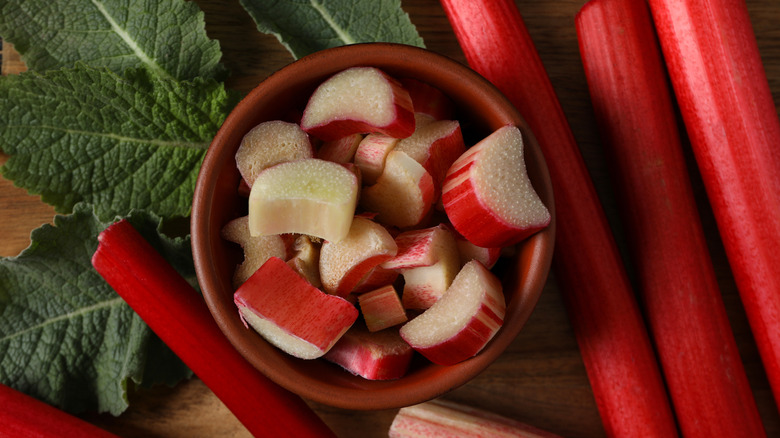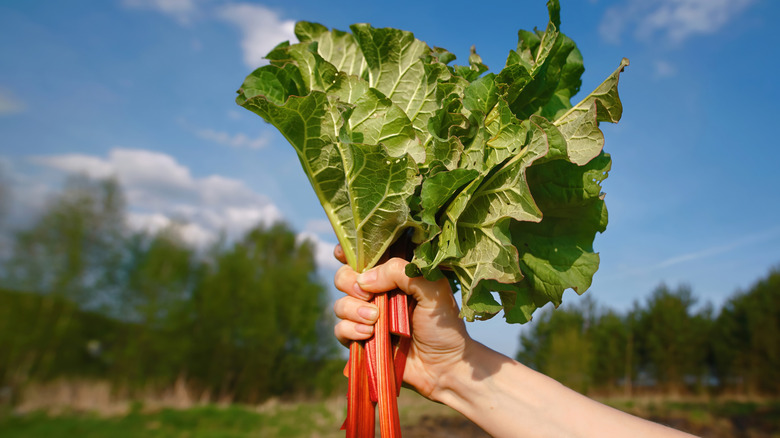Why You Shouldn't Eat Rhubarb Leaves
"Rhubarb!" It's one of those foods, like bananas or kumquats, that has an inherently funny name. It sounds like it would be a mild slur in the Land of Oz. And just look at those bright reddish-pink stalks and vibrant green leaves, like a kind of vegetable they'd grow in Candyland. Surely such a cheerful-looking plant couldn't cause anyone a bit of harm?
Well, yes and no. Those red stalks are edible, and although they're technically vegetables, they're usually used in recipes as fruit. With their tart, sour flavor, they're quite palatable when sweetened with sugar and baked into a pie or a cobbler. (They're often paired with strawberries for this purpose, although rhubarb purists — who apparently exist — insist that this isn't necessary.) They can even be puréed and added to various sauces and vinaigrettes for a bit of zing. But if you're about to cut off those leaves and toss them in a salad, think twice. No matter how much they may look like arugula, rhubarb leaves are not only inedible, but downright toxic.
Rhubarb leaves are poisonous
Rhubarbs are rich with a substance called oxalic acid. The stalks contain a fair amount, but not so much as to be inedible; the leaves, on the other hand, are saturated with the stuff. One bite of it won't kill you — it's not like cyanide — but too much of it will do some very unpleasant things to your body. Oxalate can build up in your system, gathering in your kidneys enough to cause some extremely painful kidney stones.
More acute oxalate poisoning can result in vomiting, diarrhea, and even kidney failure. Of course, this almost never happens — you would have to eat at least six pounds of rhubarb leaves to get a lethal dose of oxalic acid. However, there have been fatal rhubarb poisonings in the past, such as when people were advised to eat the leaves as a substitute for other vegetables in World War I. That was over a hundred years ago, and nutrition and medicine have advanced immeasurably since then. Still, though, it's worth being careful, as rhubarb is one of many foods that are toxic if not prepared correctly.

